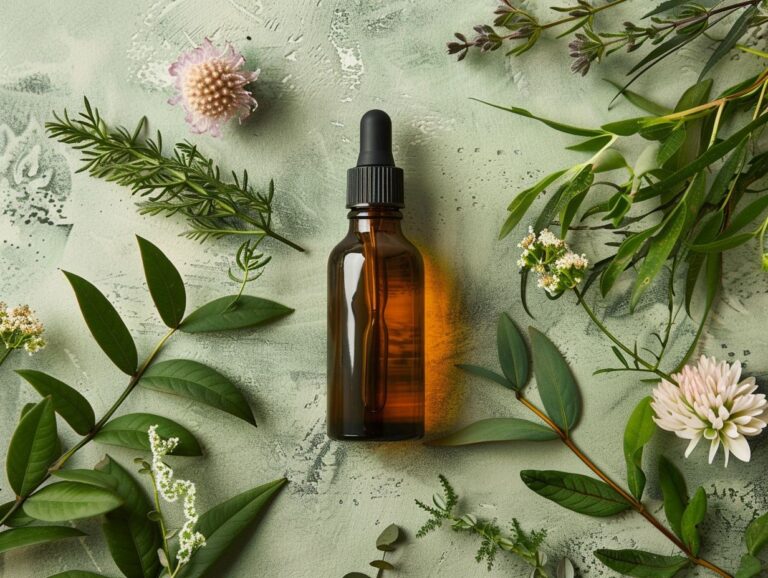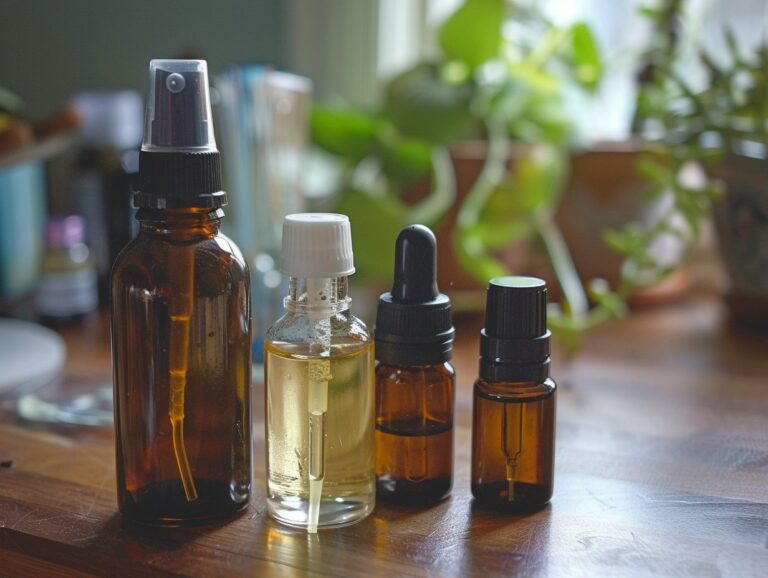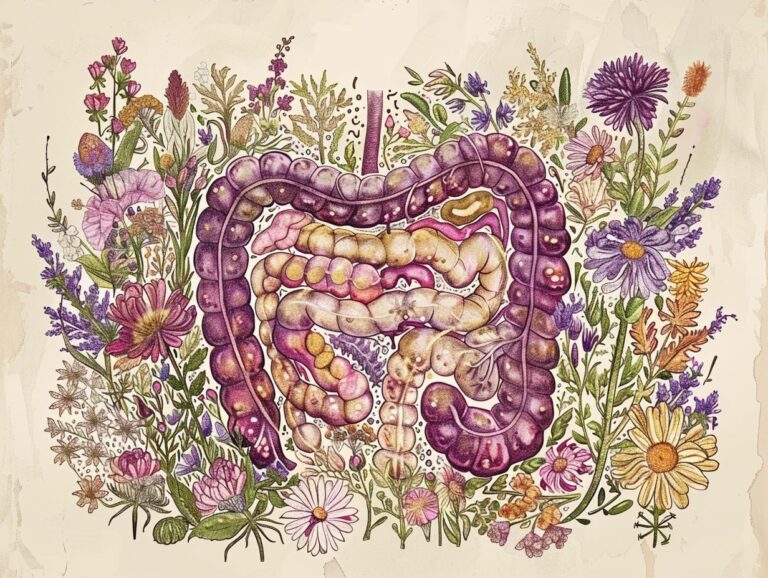Is Young Living Essential Oils a Pyramid Scheme
Essential oils have gained popularity in recent years for their alleged therapeutic benefits.
But what exactly are essential oils, and how are they made? In this article, we will explore the world of essential oils, focusing on Young Living Essential Oils.
We will delve into the business model of Young Living, the potential risks of using essential oils, and whether there are any complaints or lawsuits against the company.
Join us as we uncover the truth about Young Living Essential Oils.
Key Takeaways:
What Are Essential Oils?
Essential oils are concentrated liquids extracted from plants that capture their scents, flavors, and beneficial properties. These oils are commonly used in aromatherapy to improve physical or psychological well-being.
These oils are obtained through various methods such as distillation, cold pressing, or solvent extraction, depending on the plant source. Some popular plants used for extracting essential oils include lavender, tea tree, peppermint, and eucalyptus.
In aromatherapy, essential oils are often inhaled, applied topically, or used in massage oils for their calming, uplifting, or invigorating effects on the mind and body. The potential benefits of essential oils in health and wellness range from reducing stress and anxiety to promoting better sleep and enhancing mood.
How are Essential Oils Made?
The process of making essential oils involves extraction from plants through methods like distillation or cold pressing. Each method preserves different components of the plants to create the final concentrated oil product.
Distillation is a common method used for extracting essential oils, wherein steam is passed through the plant material to capture the volatile compounds. Plants like lavender, peppermint, and eucalyptus are often distilled to obtain their aromatic oils.
On the other hand, cold pressing involves mechanically pressing the plant material to release the oils, typically used for citrus fruits such as oranges and lemons.
Solvent extraction utilizes solvents like hexane to extract oils from delicate flowers like jasmine and roses.
What is Young Living Essential Oils?
Young Living Essential Oils is a company founded by Gary Young that specializes in producing and selling essential oils. It operates on a multi-level marketing (MLM) business model, where independent distributors promote and sell the products.
The history of Young Living dates back to 1993 when Gary Young started the company with a vision to bring pure essential oils to homes worldwide. His passion for natural health remedies led to the creation of a diverse range of essential oils known for their high quality and purity.
With a focus on enableing individuals to build their own businesses, Young Living’s MLM structure allows distributors to earn income through direct sales and team-building efforts.
Despite its success, the company has faced controversies, particularly surrounding claims made about the health benefits of their products, as well as legal challenges related to its marketing practices.
How Does Young Living Essential Oils Work?
Young Living Essential Oils works through a network of distributors who sell the products directly to consumers. These distributors earn commissions through sales and by recruiting new members into their downline, creating a hierarchical structure within the company.
The company’s compensation plan is based on a multi-level marketing strategy, where distributors not only earn from their personal sales but also from the sales made by those they recruit. This system motivates distributors to build a strong team as they receive bonuses and incentives based on the overall team performance. In essence, the more successful distributors are at building and leading their downline, the more they stand to gain from their efforts.
Is Young Living Essential Oils a Pyramid Scheme?

There have been allegations and controversies surrounding whether Young Living Essential Oils operates as a pyramid scheme. Understanding the specific business practices and recruiting patterns of the company is essential to determine its classification.
Pyramid schemes are illegal business models that primarily generate revenue based on recruiting new members rather than selling actual products or services. In contrast, Young Living emphasizes the sale of essential oils and related products, not just recruitment. Critics argue that the heavy focus on recruitment and the complex commission structures could blur the lines, leading to the pyramid scheme accusations.
What is a Pyramid Scheme?
A pyramid scheme is a business model that recruits members through a promise of payments or services for enrolling others into the scheme, rather than supplying investments or sale of products. It can be illegal under the Racketeer Influenced Corrupt Organizations Act (RICO).
Pyramid schemes typically involve a structure where initial investors recruit new members, who in turn are encouraged to recruit even more participants. The main characteristic is the focus on recruitment rather than the actual sale of products or services. This leads to a situation where the scheme becomes unsustainable, and only those at the top benefit while the majority of participants incur losses.
Under RICO, the legal implications of participating in a pyramid scheme can be severe, with potential charges including fraud, conspiracy, and racketeering. The law aims to combat organized crime and patterns of illegal activities, making it a serious offense to engage in fraudulent schemes like pyramids.
What is the Business Model of Young Living Essential Oils?
Young Living Essential Oils operates on a multi-level marketing (MLM) business model where distributors earn revenue through direct sales, bonuses, and commissions from their downline sales. The company’s revenue is primarily generated through product sales and distributor recruitment.
In terms of revenue streams, Young Living’s main source of income comes from the sale of essential oil products. These include a wide range of essential oils, diffusers, skincare products, and supplements. Distributors earn a percentage of the products they sell, as well as bonuses for achieving certain sales targets.
Distributors can earn commissions from the sales made by their downline distributors. This structure incentivizes distributors to not only sell products but also to recruit and train new distributors, thereby expanding the company’s reach and generating more revenue.
Does Young Living Essential Oils Rely on Recruiting?
Youthful Living Essential Oils relies significantly on enlisting new distributors to extend its network and drive sales. The company’s growth strategy includes motivating recruitment efforts, which has resulted in legal challenges like class-action lawsuits.
Recruitment is a fundamental component of Young Living Essential Oils’ business model, as it enables the company to reach a wide customer base and expand its market presence. By offering incentives and rewards for successful recruits, Young Living encourages its distributors to actively engage in recruiting activities. This approach has drawn scrutiny from legal authorities, with several class-action lawsuits filed against the company alleging misleading recruitment practices.
What are the Red Flags of a Pyramid Scheme?
Red flags of a pyramid scheme include a focus on recruitment over product sales, promises of high returns for minimal effort, and misleading income disclosures. The Federal Trade Commission (FTC) cautions against schemes that rely on false claims and unsustainable business practices.
Pyramid schemes often exhibit a hierarchical structure where existing participants are incentivized to recruit new members rather than sell products or services. This continuous emphasis on recruitment can lead to unsustainable growth and eventual collapse. Deceptive practices may involve exaggerated income potential, unrealistic earnings projections, and opaque or confusing compensation plans that benefit only a few at the top of the hierarchy. Such misleading tactics not only harm unsuspecting participants but also catch the attention of regulatory agencies like the FTC. When these schemes come under legal scrutiny, individuals or companies involved may face severe penalties and consequences for their fraudulent activities.
What are the Benefits of Young Living Essential Oils?

These essential oils are marketed as natural solutions to common health concerns, with claims that they can alleviate stress, improve sleep quality, and boost immunity. Proponents of Young Living Essential Oils often highlight the purity and potency of their products, emphasizing the use of organic and sustainably sourced ingredients. They assert that the therapeutic properties of these oils can address a range of ailments, from headaches to digestive issues.
Are There Any Scientific Studies Supporting the Benefits of Essential Oils?
Scientific studies on essential oils have explored their potential therapeutic effects, such as antimicrobial properties, stress reduction, and pain relief. While some research supports the benefits of essential oils, the scientific community emphasizes the need for further study and clinical evidence.
Researchers have delved into the mechanisms behind these effects, finding that essential oils can influence mood and cognition through their aromatic compounds. Moreover, aromatherapy practitioners often use essential oils to alleviate symptoms of anxiety and promote relaxation. Some essential oils like lavender and peppermint have shown promise in managing chronic pain and reducing inflammation. Despite these encouraging results, more randomized controlled trials are required to substantiate these claims and fully understand the scope of essential oils’ therapeutic potential.
What are the Concerns about Young Living Essential Oils?
Concerns about Young Living Essential Oils include allegations of false health claims, the potential dangers of ingesting essential oils, and lawsuits related to product safety. These issues have raised questions about the safety and efficacy of the company’s products.
One of the significant controversies surrounding Young Living Essential Oils is the issue of false health claims. There have been concerns raised about the company’s representatives promoting their essential oils as curing or treating various health conditions without substantial scientific evidence to support these claims.
The potential dangers of ingesting essential oils have been a subject of debate within the aromatherapy community. While some oils can be safely used in small quantities when properly diluted, ingestion of certain essential oils can lead to severe health risks, including digestive issues, organ damage, and even toxicity.
Young Living has faced lawsuits related to product safety, with some consumers reporting adverse reactions to the use of their oils. These incidents have cast doubts on the quality control and safety measures implemented by the company to ensure the well-being of their customers.
Are There Any Complaints or Lawsuits Against Young Living Essential Oils?
Youg Living Essential Oils has faced legal challenges, including lawsuits alleging false advertising, misrepresentation of product benefits, and violations of marketing regulations. Notable cases like the one involving Julie O Shaughnessy have brought attention to the company’s marketing practices.
Julie O Shaughnessy’s lawsuit against Young Living shed light on the allegations of misleading claims regarding the health benefits of their essential oils. The legal complaints also raised concerns about the company’s sales practices and the transparency of their product information.
These lawsuits have not only tarnished Young Living’s reputation but have also sparked debates about the ethics and credibility of the wellness industry as a whole. The outcomes of these legal battles serve as cautionary tales for companies that engage in questionable marketing tactics.
What are the Potential Risks of Using Essential Oils?
Using essential oils carries potential risks, including skin irritation, allergic reactions, and adverse effects from ingesting certain oils. Improper use, overdose, and interactions with medications can pose dangers to individuals using these products.
It is crucial to understand the potential hazards associated with essential oil usage to ensure a safe experience. Skin sensitivities can lead to redness, itching, or even burns when oils are applied directly without proper dilution.
Allergies to specific compounds in essential oils can manifest as rashes, hives, or respiratory issues, emphasizing the importance of performing patch tests before extensive use.
Caution must be exercised when ingesting oils, as not all oils are safe for consumption. Ingestion can result in digestive upset, toxicity, or serious health complications if not done under professional guidance.
Conclusion: Is Young Living Essential Oils a Pyramid Scheme?

The classification of Young Living Essential Oils as a pyramid scheme is a subject of debate influenced by various factors. Analyzing the company’s practices, legal history, and customer experiences can provide insights into its true business model.
Young Living’s structure includes a multi-level marketing approach where independent distributors can earn commissions not just from their sales but also from the sales of those they recruit. While this structure has similarities to a pyramid scheme, it’s important to note that Young Living offers tangible products in the form of essential oils, diffusers, and wellness products, contributing to its legitimacy.
On the other hand, critics argue that the emphasis on recruitment and the need to maintain a certain level of monthly purchases to qualify for commissions can create a pyramid-like structure. They highlight instances where distributors focus more on recruiting than on selling the actual products.
Frequently Asked Questions
Is Young Living Essential Oils a Pyramid Scheme?
Yes, Young Living Essential Oils has been accused of operating as a pyramid scheme due to its business structure and practices.
What is a pyramid scheme?
A pyramid scheme is a fraudulent business model in which members make money primarily by recruiting others into the scheme, rather than through the sale of products or services.
How does Young Living Essential Oils make money?
Young Living Essential Oils makes money through the sale of their essential oil products and by recruiting members to join their multi-level marketing program.
Does Young Living Essential Oils require members to recruit others?
Yes, while it is not a requirement to recruit others, members are heavily encouraged to do so in order to advance within the company.
Is Young Living Essential Oils a legitimate company?
Yes, Young Living Essential Oils is a legitimate company that sells essential oil products and operates as a multi-level marketing business.
Are all multi-level marketing companies pyramid schemes?
No, not all multi-level marketing companies are pyramid schemes. However, it is important to do thorough research and carefully consider the business model before joining any MLM company.







